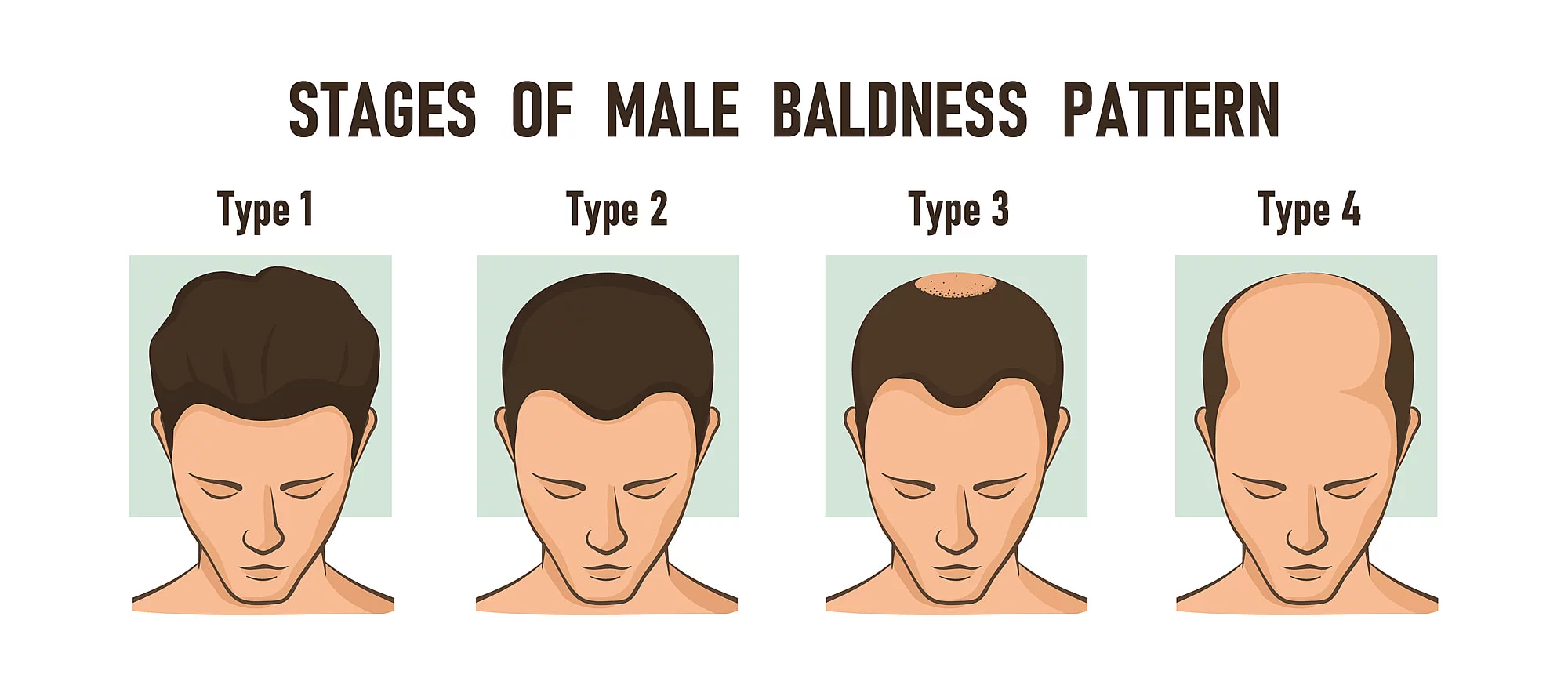Pulse of Information
Your source for the latest insights and updates.
Hair Today, Gone Tomorrow: The Surprising Truth About Hair Loss
Discover the shocking facts behind hair loss and learn what really makes it disappear—your hair could be at risk! Read more now!
Understanding the Different Types of Hair Loss: Causes and Treatments
Understanding the different types of hair loss is crucial for identifying effective treatments and preventive measures. Hair loss can be categorized into several types, including androgenetic alopecia, which is a hereditary condition affecting both men and women, and telogen effluvium, which often occurs due to stress, hormonal changes, or medical conditions. In addition, alopecia areata is an autoimmune disorder that leads to sudden hair loss in patches, while traction alopecia results from prolonged tension on the hair follicles due to hairstyles like tight braids or ponytails.
Each type of hair loss requires specific treatments. For example, individuals experiencing androgenetic alopecia may benefit from minoxidil or finasteride, which are FDA-approved medications that promote hair regrowth. In contrast, telogen effluvium often resolves itself once the underlying cause, such as stress or poor nutrition, is addressed. For those with alopecia areata, corticosteroid injections may stimulate hair regrowth. It’s essential to consult with a healthcare provider or a dermatologist to determine the most suitable treatment plan based on the type and cause of hair loss.

Myths and Facts About Hair Loss: What You Need to Know
Hair loss is a topic surrounded by numerous myths and misconceptions that can lead to confusion and misinformation. One common myth is that wearing hats causes hair loss. In reality, hats do not affect the health of your hair follicles. Another prevalent belief is that hair loss is solely inherited from the mother's side of the family. While genetics do play a significant role, hair loss can be influenced by a variety of factors, including hormonal changes, stress, and nutritional deficiencies.
On the flip side, there are also important facts about hair loss that everyone should be aware of. For instance, it is normal to lose 50 to 100 strands of hair daily, and this does not necessarily indicate a larger problem. A crucial fact is that certain medical conditions, such as alopecia areata and thyroid disorders, can lead to hair thinning and loss. Understanding these facts can empower individuals to seek appropriate treatments and consult healthcare professionals when they notice significant changes in their hair health.
Is Stress Causing Your Hair Loss? The Surprising Connection
Stress is a common yet often overlooked factor that can significantly impact our overall health, including our hair. When we experience high levels of stress, our bodies respond by releasing hormones such as cortisol, which can disrupt the normal hair growth cycle. This disruption can lead to a condition known as telogen effluvium, where hair follicles enter a resting phase prematurely, resulting in noticeable hair loss. Understanding this connection is crucial for anyone who has noticed an increase in shedding during stressful periods.
Moreover, the connection between stress and hair loss extends beyond merely hormonal changes. Psychological stress can lead to behaviors that further exacerbate hair loss, such as excessive hair styling or poor nutrition. To combat this cycle, implementing stress-management strategies like regular exercise, meditation, and a balanced diet can be beneficial. By prioritizing mental well-being, not only can we reduce stress levels, but we might also help in promoting healthier hair growth.